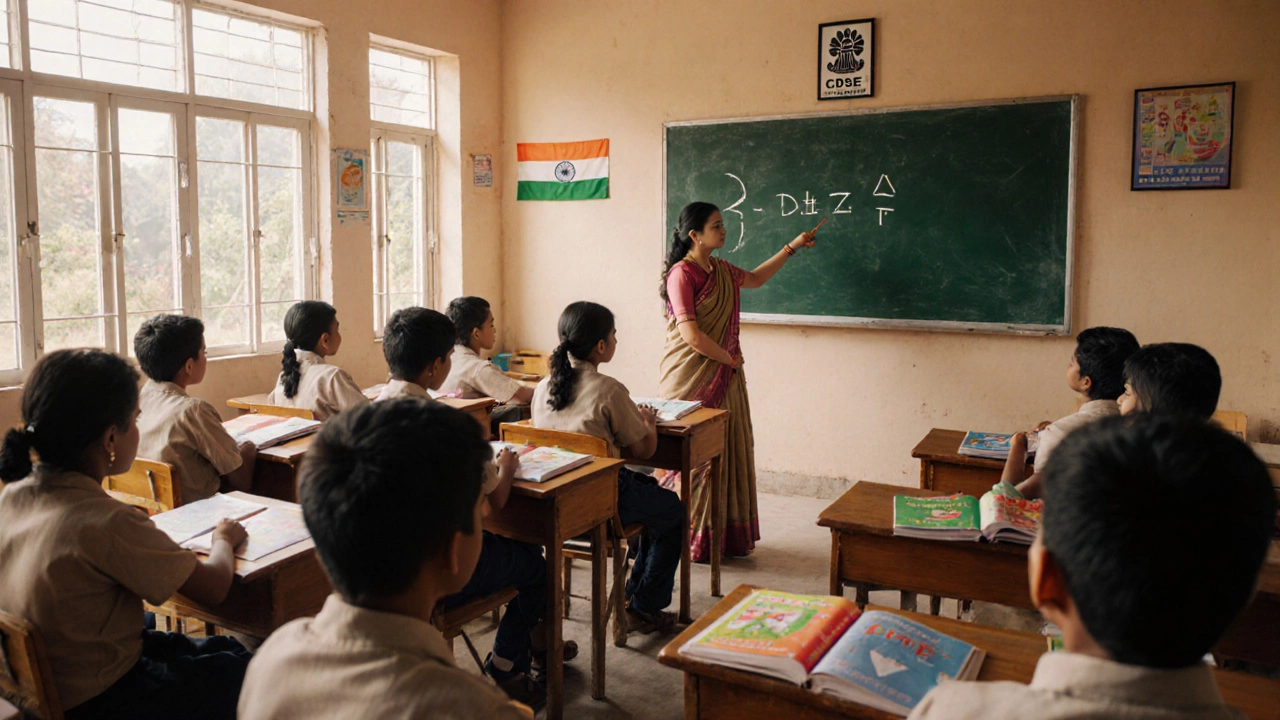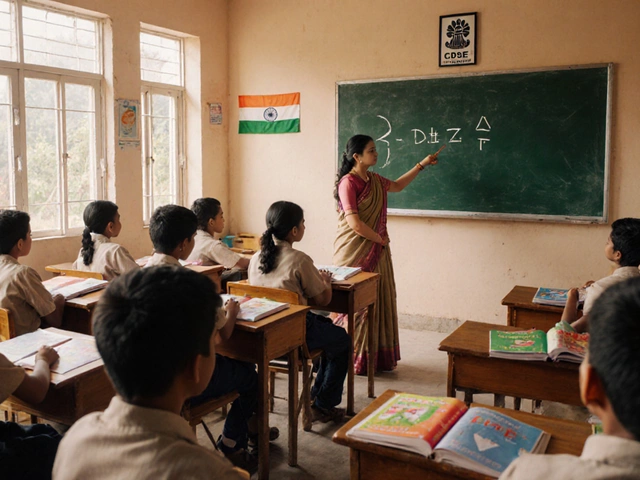
CBSE vs International Boards Decision Guide
CBSE
Indian national board focusing on science and math aligned with competitive exams.
International Boards
Globally recognized boards like IB and Cambridge offering broader curricula.
Recommended Board
CBSE stands for the Central Board of Secondary Education, a national educational board operating under the Indian Ministry of Education. It governs the curriculum, examinations and certification for millions of schools across India and in many overseas Indian schools.
Quick Takeaways
- CBSE is an Indian national board, not an international one.
- It follows the NCERT syllabus, which is designed for Indian academic standards.
- International boards like International Baccalaureate (IB) and Cambridge Assessment International Education (CAIE) differ in assessment style and global recognition.
- Choosing between CBSE and an international board depends on college goals, mobility, and teaching philosophy.
- CBSE’s emphasis on science and mathematics aligns well with Indian competitive exams such as JEE and NEET.
What Exactly Is CBSE?
Founded in 1962, CBSE was created to “regularise” education across the newly independent nation. Its core mandate is to design a uniform curriculum • from Class 1 to Class 12 • and to conduct board examinations for Class 10 and Class 12. The board works closely with the National Council of Educational Research and Training (NCERT), which drafts textbooks and pedagogical guidelines.
CBSE vs. International Boards
When people ask if CBSE is "international," they usually compare it with globally recognised programs. Below is a side‑by‑side snapshot.
| Aspect | CBSE (India) | International Baccalaureate (IB) | Cambridge Assessment (CAIE) |
|---|---|---|---|
| Governing body | Central Board of Secondary Education | International Baccalaureate Organisation | Cambridge Assessment International Education |
| Primary market | India (plus Indian schools abroad) | Global (over 150 countries) | Global (over 160 countries) |
| Curriculum focus | Science‑math oriented, aligns with Indian competitive exams | Holistic, includes Theory of Knowledge, Creativity, Service | Flexible, offers IGCSE and A‑Level pathways |
| Assessment style | Final board exams (paper‑based) + internal assessments | Continuous assessment + final exams | Modular exams, points‑based grading |
| University recognition | Widely accepted in India; recognized abroad with conversion | Globally accepted, often preferred for overseas universities | Globally accepted, especially in UK and Commonwealth nations |

Why Some Schools Call CBSE "International"
Indian expatriate schools in the Middle East, Africa and Europe often adopt CBSE because it offers a familiar framework for Indian families. To them, "international" simply means "available outside India" - not that the board itself is an international authority. These schools follow the same NCERT syllabus and sit for the same May‑June board exams as schools in Delhi.
Impact on Higher Education Choices
If your goal is to attend an Indian university, CBSE aligns perfectly with entrance tests like JEE (engineering) and NEET (medicine). The board's emphasis on problem‑solving and timed exams mirrors the style of those competitive tests.
For students eyeing UK, US or Australian universities, an IB or Cambridge A‑Level might reduce the need for extra credential conversion. However, many overseas universities still accept CBSE scores, especially when paired with strong SAT/ACT or IELTS results.
Common Misconceptions
- CBSE is not ISO‑certified as an "international" board. ISO certification deals with quality management, not academic jurisdiction.
- CBSE does not offer "global" credits like IB does; you earn a national certificate (Class 10 and Class 12).
- International schools that list CBSE on their brochures are simply highlighting the board’s availability, not claiming it follows an international curriculum.

Choosing the Right Board for Your Child
- Assess mobility. If the family moves frequently across countries, an internationally recognised board reduces paperwork.
- Check university targets. Indian engineering or medical aspirants usually stay with CBSE; global‑oriented students may benefit from IB or Cambridge.
- Consider teaching style. CBSE favors textbook‑driven learning; IB encourages inquiry‑based projects.
- Factor in costs. CBSE schools in India are often cheaper than IB or Cambridge schools abroad.
Practical Checklist for Parents
- Verify the school’s affiliation with the CBSE regional office.
- Ask for sample NCERT textbooks to gauge content depth.
- If abroad, confirm that the school’s CBSE results are accepted by local universities.
- Plan for supplemental language or extracurricular certifications if aiming for foreign higher education.
Bottom Line: Is CBSE Indian or International?
In short, CBSE is an Indian national board that exports its curriculum to Indian schools worldwide. It isn’t an "international" board in the sense of IB or Cambridge, but its reach beyond India gives it a quasi‑global presence. Parents and students should decide based on academic goals, mobility, and the type of learning experience they value.
Frequently Asked Questions
Does CBSE have any international accreditation?
No. CBSE is accredited by the Indian Ministry of Education. International accreditations are typically held by boards like IB or Cambridge.
Can CBSE scores be used for admission to US universities?
Yes, many US universities accept CBSE scores, especially when accompanied by SAT/ACT and English proficiency tests. It’s advisable to check each university’s admission policy.
What is the main difference between CBSE and the International Baccalaureate?
CBSE follows a textbook‑centric syllabus designed for Indian exams, while IB emphasizes interdisciplinary projects, critical thinking, and a global outlook.
Are there CBSE schools in Africa?
Yes. Countries with sizable Indian diaspora, such as Kenya, Tanzania, and South Africa, host several CBSE‑affiliated schools.
Which board is better for a student wanting to study engineering abroad?
Both CBSE and IB can lead to engineering studies abroad. CBSE aligns well with Indian entrance exams, while IB may ease the transition to European or US universities due to its international recognition.





